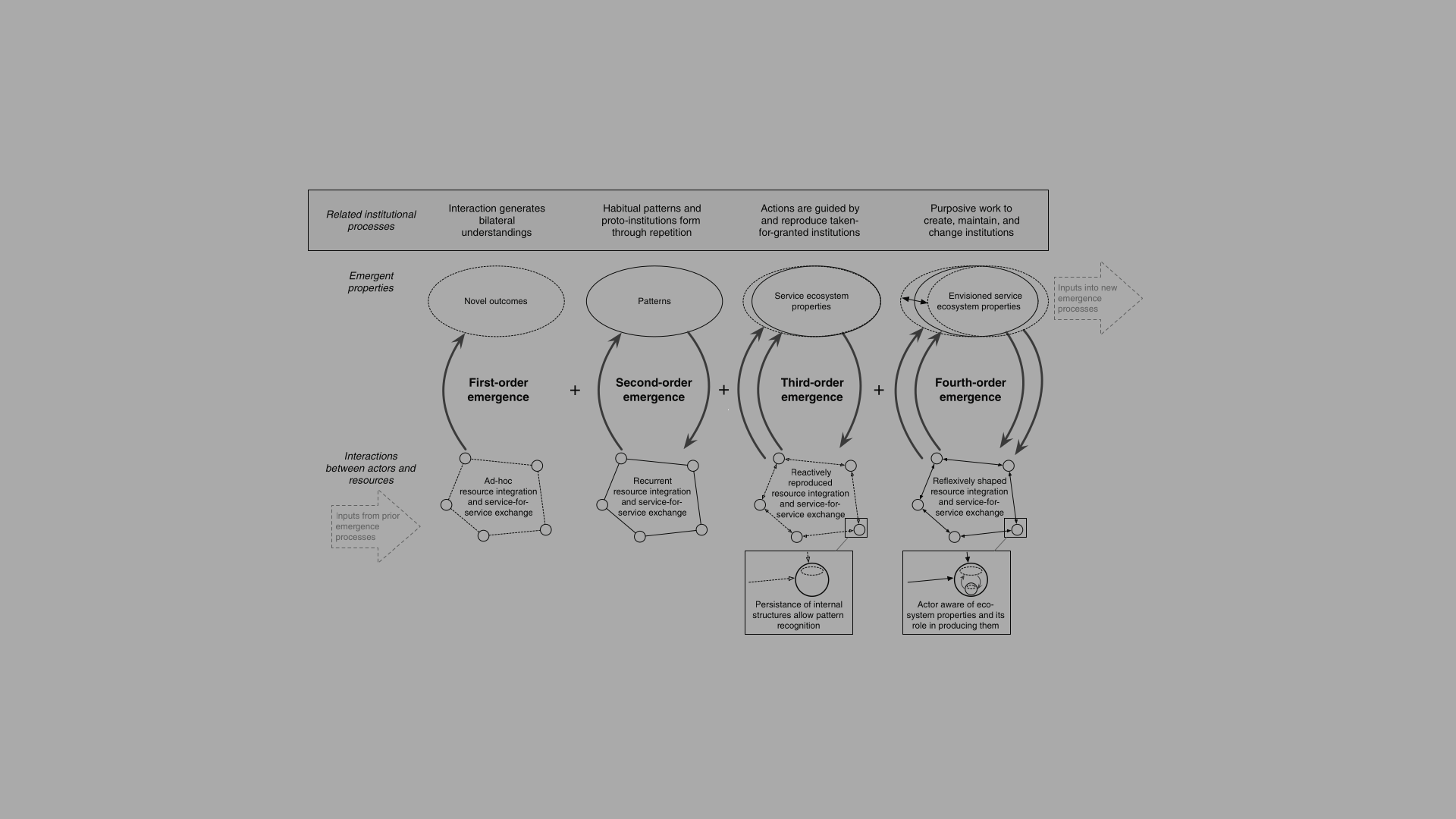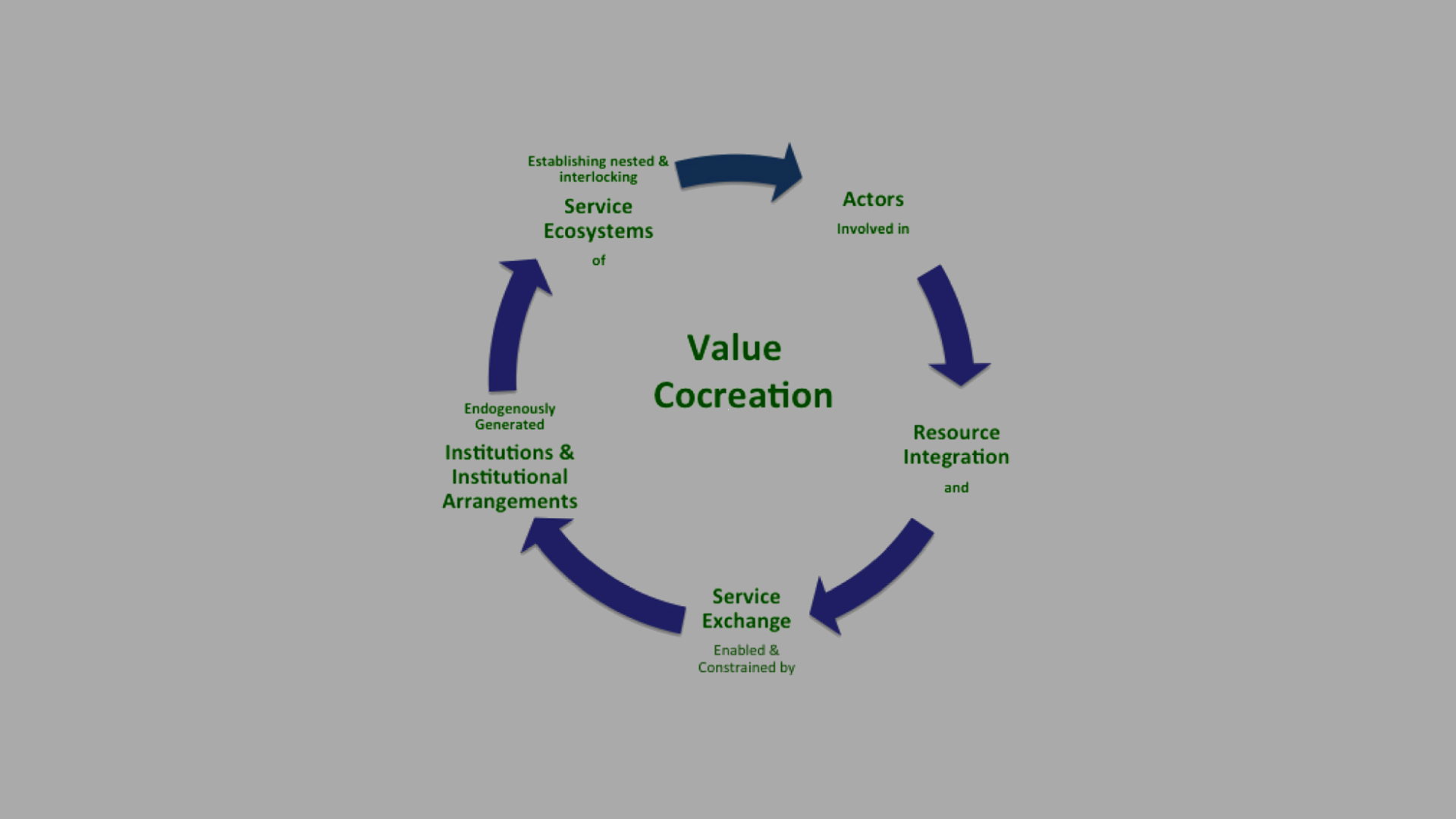
What is S-D Logic?
Service-Dominant (S-D) Logic is a mindset for a unified understanding of
the purpose
and nature of organizations, markets and society. The foundational proposition of S-D
logic is that organizations, markets, and society are fundamentally concerned with
exchange of service—the applications of competences (knowledge and skills) for the
benefit of a party. That is, service is exchanged for service; all firms are service firms;
all markets are centered on the exchange of service, and all economies and societies
are service based. Consequently, marketing thought and practice should be grounded
in service logic, principles and theories.
In line with S-D logic, it follows that instead of service marketing “breaking free” from
goods marketing, as has been the pursuit of the services marketing sub-discipline for
the last several decades, all of marketing needs to break free from the goods and
manufacturing-based model—that is, goods-dominant (G-D) logic. S-D logic
embraces concepts of the value-in-use and co-creation of value rather than the value-
in-exchange and embedded-value concepts of G-D logic. Thus, instead of firms being
informed to market to customers, they are instructed to market with customers, as
well as other value-creation partners in the firm’s value network.
Historical perspective on S-D Logic
The great economic law is this: services are exchanged for services...it is trivial, very commonplace;
it is nonetheless, the begining, the middle, and the end of economic
science.
- Fredric Bastiat 1848
What is needed is not an interpretation of the utility created by marketing, but a marketing
interpretation of the whole process of creating utility.
- Wroe Alderson 1957
The importance of physical products lies not so much in owning them as obtaining the services they
render.
- Philip Kotler 1977
Customers do not buy goods or services. They buy offerings which render services, which create
value...activities render services, things render services.
- Evert Gummesson 1995
The focus is not on products, but on the consumers' value-creating processes, where value emerges for
consumers, and is perceived by them...the focus of marketing is
value creation rather than value distribution.
- Christian Gronroos 2000




